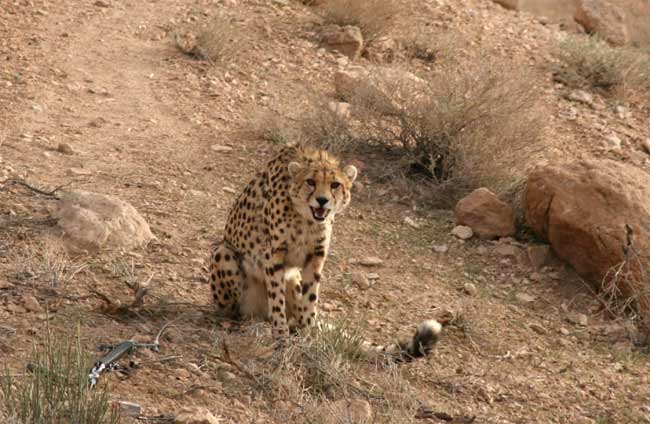GPS Collars Could Help Save Endangered Cheetahs

Wildlife biologists have successfully fitted two Asiatic cheetahs in Iran with GPS collars which will allow scientists to better understand the needs of this critically endangered species and aid efforts to save it from extinction.
"These captures herald a new era in conservation in Iran," said biologist Hooshang Ziaie, director of the project in Iran. "This is the first time we have successfully deployed these collars in Iran, and the data they provide will enable us to make very specific recommendations for conserving cheetahs for future generations."
This subspecies of cheetah, the fastest animal on the planet, once prowled open plains and deserts from the Red Sea to India, but today it is found only in small pockets of an extremely arid area on the edges of Iran's Kavir Desert.
Poaching of the cheetahs and their prey and the degradation of habitat caused by livestock grazing have drastically reduced their numbers. Today, Iran's Department of Environment estimates that there are only 60 to 100 cheetahs left.
Scientists with the Wildlife Conservation Society (WCS) in New York and Iran's Conservation of Asiatic Cheetah Project captured two male cheetahs and attached GPS collars to them.
The collars will allow the scientists to track the routes the cheetahs use to travel between protected areas and to study the features of the landscape that are key to the cheetahs' survival.
"We know very little about the important ecological needs of the species in Iran except that they require vast areas for their survival," said Luke Hunter, a WCS biologist who oversees the project. "Understanding their movements as they travel between reserves is one of the first steps in establishing a plan to secure and connect the few remaining populations of this incredible animal."
Get the world’s most fascinating discoveries delivered straight to your inbox.
The scientists hope to collar four more cheetahs this winter before the desert heat becomes too intense to safely capture the animals.
- Top 10 Deadliest Animals
- Elusive Cheetahs Caught on Film
- World's Most Endangered Big Cat Trapped and Studied
- Images: Endangered and Threatened Wildlife
 Live Science Plus
Live Science Plus






